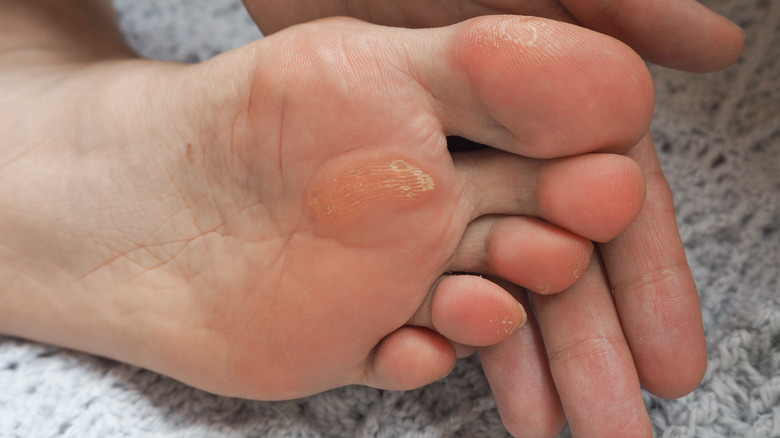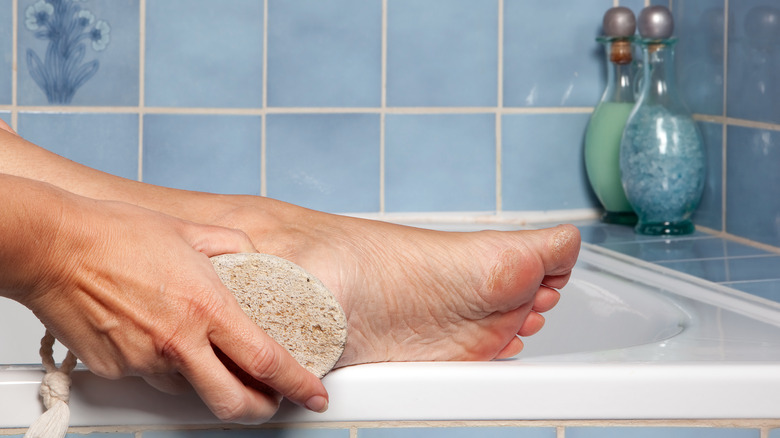Here's The Best Way To Treat Calluses On Your Feet
Calloused as they may be, your feet are remarkably designed to carry you through life. Part of what allows them to endure years of activity is tough skin. In fact, the skin on the bottom of your feet is 3 millimeters thick, made of many tissues and cells, including collagen, elastic tissue, sebaceous glands, and nerve endings (via Verywell Health). Sometimes, friction and pressure do cause calluses on the bottoms of your feet and toes, which may be painful (via American Academy of Dermatology Association). The good news is that you can usually treat calluses with a little bit of tender loving care.
The first thing you should do to tackle rough skin is to soak your feet in warm water for about 10 to 20 minutes. Try to rub away one layer of the moist skin using your fingers. After several soaks over a few days, you may be able to remove the callus. If you're having trouble removing stubborn calluses, you can add 2 to 3 tablespoons of Epsom salt to a bowl of warm water before soaking them. Alternatively, 5 tablespoons of castor oil in warm water helps soften calluses. Want to try a different method? File the callus gently with a pumice stone or fine-grade sandpaper after soaking, making sure not to rub away too much skin (via Healthline).
Tips to prevent calluses
You can prevent skin from becoming thick by following a few tips. Apply creams and lotions that contain ammonium lactate, salicylic acid, and urea to soften tough skin. You can also try pads specifically designed for calluses if they are painful. Keep in mind that your shoes play an important part in treating and preventing calluses, so make sure they aren't too tight and have some width and a slight elevation in the toe box to help keep the pressure off of your calluses. In addition, keep your toenails trimmed to avoid them from pressing against the front of your shoes (via Cleveland Clinic).
Avoid using sharp objects like razors on calluses since they could cause bleeding and infection. Moreover, medication for calluses is not recommended because the chemicals used to treat calluses can damage the healthy skin around them. Diabetics and people with circulation problems or sensitive skin should visit their doctor before treating calluses (via Cleveland Clinic).


